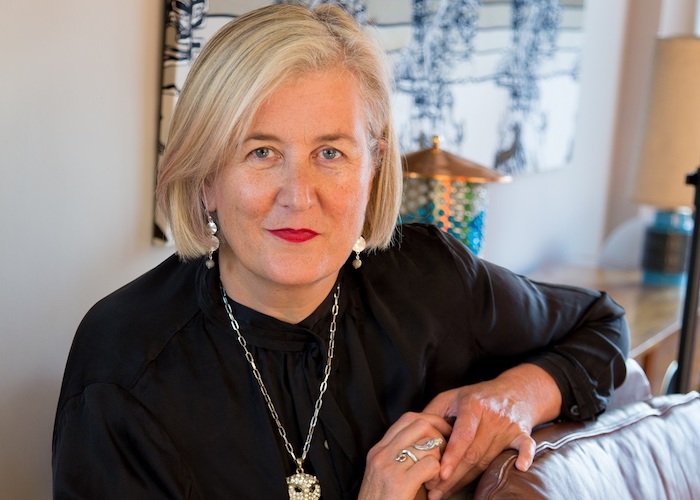Eamonn Forde speaks to Lucie Caswell, general manager and chief policy officer at the Music Publishers Association (MPA), and Jane Dyball, former head of the MPA and now founder of music/tech strategy and development company Laffittes, to hear their thoughts on the challenges facing the MLC (Mechanical Licensing Collective).
The MLC (Mechanical Licensing Collective) is, depending on who you speak to, one of many things: for some, it’s both the future and the saviour of digital music licensing online for publishers; for others, it’s a well-intentioned pipe dream that, like Bambi on the frozen pond, probably will not have the legs to support its upper body weight; and for the more cynical, it’s a furnace into which tens of millions of dollars will be tipped and all we’ll get at the end is soot and ash.
Let’s start, however, with the facts of the matter, explaining why it was set up, what it wants to achieve and how it says it will go about achieving that.
It was established to issue and administer blanket mechanical licenses for the streaming and downloading of musical works on DSPs. The MLC will also collect the due royalties and distribute them to songwriters, composers, lyricists and music publishers. It was brought into being after the Music Modernization Act (MMA) was signed into US law in October 2018 and, as dictated by the US Copyright Office, had to submit its proposals to the Copyright Royalty Board to outline its structure, goals and funding.
The MLC operates as a non-profit (i.e. it does not take a cut on the royalties it brings in and distributes) and will be funded by the DSPs who secure their blanket licenses through it. It has $37.25m to get it up and running and will receive an initial $29m a year when it is operational and issuing its blanket licenses.
It is a US-only initiative but, if it can pull it off, it could provide a template for other markets to follow. It says on its website: “The MLC is also building a publicly-accessible musical works database, as well as a portal that creators and music publishers can use to submit and maintain their musical works data. These tools will help ensure that creators and music publishers are paid properly.”
Kris Ahrend, a former executive at Warner/Rhino and Sony, was named as the first CEO of the MLC at the start of this year. He and his board of publishers and songwriters have their work cut out as – although this may be bumped due to the impact of the coronavirus pandemic – the MLC has set itself a launch date of January 2021, a mere 12 months after Ahrend’s appointment.
The MLC is using the Harry Fox Agency (HFA) database as the foundations of its own, broader, database and will work with the HFA as it expands, with summer 2020 being the target date to have data wheels in motion. In order to access data via the MLC Portal, all music publishers and self-administered songwriters/composers must first be registered with the MLC.
There is an onus on publishers and writers to ensure their data is both correct and regularly updated. “Once you’ve registered and have access to The MLC Portal, you can check your data for accuracy and completeness, register your new musical works, and identify new sound recordings that feature your works,” the MLC site says.
DSPs then have to file monthly data reports to the MLC for their use of music as well as corresponding royalty payments which are calculated at the statutory rate.
So, that on paper – a very long piece of paper – is what it has to do and how it plans to go about doing it. Even factoring in a slight delay due to the impact on the entire music business of COVID-19, can it achieve its very ambitious goals?
It is important to note that the MLC is not without its antecedents. In the UK, PRS for Music had looked to get the Global Repertoire Database (GRD) off the ground close to a decade ago. It hit the buffers, however, just four years later, with costs estimated at £8m. Rumours abounded that it was scuppered due to in-fighting among collection societies over how it should be funded.
There is a huge fear that, with the wreckage of the GRD still in our sightline and its charred remains still lingering in our nostrils, this quote from Karl Marx may haunt the whole enterprise: history repeats itself, first as tragedy, second as farce.

Lucie Caswell
“It’s all very well to have a deadline for things being instated, but if they aren’t instated logistically and in practice then that would be a huge letdown.”
– Lucie Caswell, Music Publishers Association
“I think it’s a huge task,” says Lucie Caswell, general manager and chief policy officer at the Music Publishers Association (MPA), who says it must be airtight on launch as trying to fix things while airborne is unlikely to work. “We’ve had other systems launch before that weren’t tested properly and then had a harder time trying to rectify problems when live. So whilst we would like this to be properly tested before being fully fledged, the clock is ticking; and the clock is also ticking in terms of the MLC keeping up with its provisions. It’s all very well to have a deadline for things being instated, but if they aren’t instated logistically and in practice then that would be a huge letdown. Obviously that has been a concern.”
Jane Dyball, former head of the MPA and now founder of music/tech strategy and development company Laffittes, says there is huge goodwill in the industry for the MLC to be a success out of the gates.
“They’ve just appointed a new CEO [Kris Ahrend] and they’ve got Alisa Coleman [COO of ABKCO] as the chair – and if anyone can do it, those guys can,” she says, before outlining what the wider challenges are. “But I think there are two real key issues here: one is stakeholder buy in and one is technology. For a mechanical rights organisation to work, it has to deliver the service that its stakeholders want – and that becomes more challenging when different stakeholders want different things.”
“I think there are two real key issues here: one is stakeholder buy in and one is technology. For a mechanical rights organisation to work, it has to deliver the service that its stakeholders want.”
– Jane Dyball, Laffittes
This, in part, is what tore down the GRD six years ago, so one hopes the key players in the MLC are keenly aware of recent history and where naked flames need to be kept away from kerosene.
“The issue with stakeholders is working out what services are you going to give, how flexible you can be in those services and whether or not you can deliver the services that the members want that keeps the members in the collective,” says Dyball.

Jane Dyball
A recurring problem for all digital licensing is around data interoperability and the pressing need for metadata standards. This is all exacerbated by the fact that DSPs have different data requirements – some profound, some subtle – that can confuse things here.
Caswell says the industry has not been asleep at the wheel here. “Data complexity is a huge issue across the sector,” she argues. “But to meet that, there are some really innovative initiatives going on across the sector, looking at the use, the management, the nature and the standards of data […] It’s not as if it isn’t a known necessity. But you have very different people and very different regimes using data slightly differently – which may or may not be able to continue. Interoperability doesn’t necessarily mean identical. But this is essential to the growing ecosystem – let alone the MMA. If the MMA is going to start, it is a central issue to its ability to deliver on the promise.”
“Data complexity is a huge issue across the sector. But to meet that, there are some really innovative initiatives going on across the sector, looking at the use, the management, the nature and the standards of data.”
– Lucie Caswell, Music Publishers Association
Dyball suggests that the collapse of the GRD could, in effect, be the making of the MLC, should all the unspooling red tape be tidied up.
“I never like being the person that says we tried that and failed – and I’m not for a moment saying we tried, we failed [and so] we can never try [again],” she says. “But I think there is a big learning experience from the GRD in terms of why that came to nothing. I think that some of the issues that derailed that no longer apply and some of them do and there’s an opportunity here to address them which shouldn’t be missed. There is an opportunity to learn in building a global repertoire database, which is what’s needed – but that’s not the source of the data. The source of the data is the publisher. All of the copyright data originates with the publisher – and publishers have different systems and different ways of collecting data and different ways of passing that data on.”
On the shuttering of the GRD in 2014, PRS for Music issued this statement. “We are disappointed the GRD cannot move forward as planned, though we remain committed to the principles of a single point of works registration and reconciliation of ownership shares under broad stakeholder governance,” it said. “These principles remain key to the efficient processing of multi-territory licenses and accurate distribution of royalties across all usages of creative works.”
Could the MLC offer a viable template for the ideas and goals of the GRD to be put into action in the UK and Europe?
Dyball believes so. “I hope that if they build something great in America, then it could be expanded to hold whole worldwide copyright information because that’s the biggest problem that the publishing industry has and has not yet overcome,” she says.
“I hope that if they build something great in America, then it could be expanded to hold whole worldwide copyright information because that’s the biggest problem that the publishing industry has and has not yet overcome.”
– Jane Dyball, Laffittes
Caswell, however, says that history here shows that the US and Europe have tackled the same issues in characteristically different ways and that, despite the collapse of GRD, the European model and the European licensing ideals should have a guiding hand on the shoulder of the MLC and what it is trying to achieve in the US. If it can slice through that Gordian knot, it offers something that could be replicated in Europe and the rest of the world.
“The European standard and various aspects of licensing have been historically better, shall we say, than the US,” she proposes. “It’s an interesting situation to be in for the US to have a different approach now – and one that certainly improves on the past in the US […] Whether or not it brings it up to par or if it surpasses that of the European standards, we have yet to see.”
Dyball is firmly of the belief that naysaying and pessimism from the off is probably going to doom the many admirable goals of the MLC. “If everybody’s going around saying it’s never going to happen, it’s never going to happen,” she says. “It will become a self-fulfilling prophecy.”
Perhaps referencing the politics and the pain of GRD, she says that collective will can give it momentum, but collective dabbling could be its undoing. “It’s possible if everyone puts their minds to it to do things incredibly quickly; but if there is a lot of discussion and debate around every decision then that inevitably slows the current system,” she says. “I know that there is a core team of people who are involved in it. If you’re doing anything like this, what you don’t really want is a Greek chorus.”
Ultimately, given the false start of GRD, there is a towering need for the MLC to come good – even if the launch deadline is January is shunted slightly.
“They have got great people in charge – so I think if they can’t do it, no one can,” says Dyball of the people driving the MLC project. “But I think failure probably isn’t an option either. I’ve got twins and I always laugh because mothers always say to me, ‘Oh my God, how did you cope?’ And my answer is always, ‘I didn’t realise there was another option. I didn’t realise there was a box that said: Can’t Cope.’”
